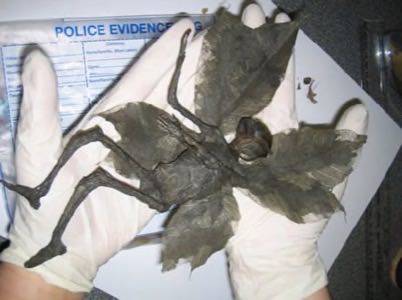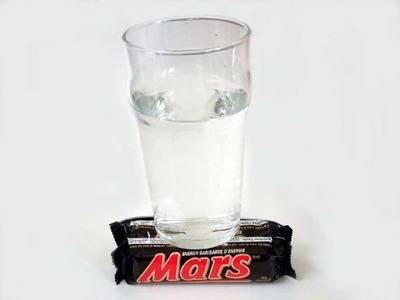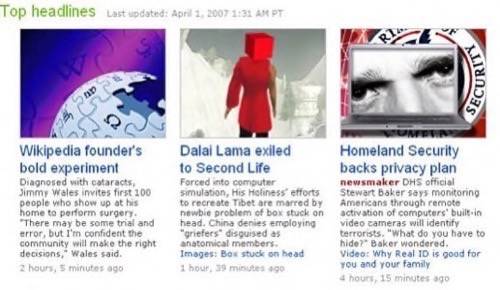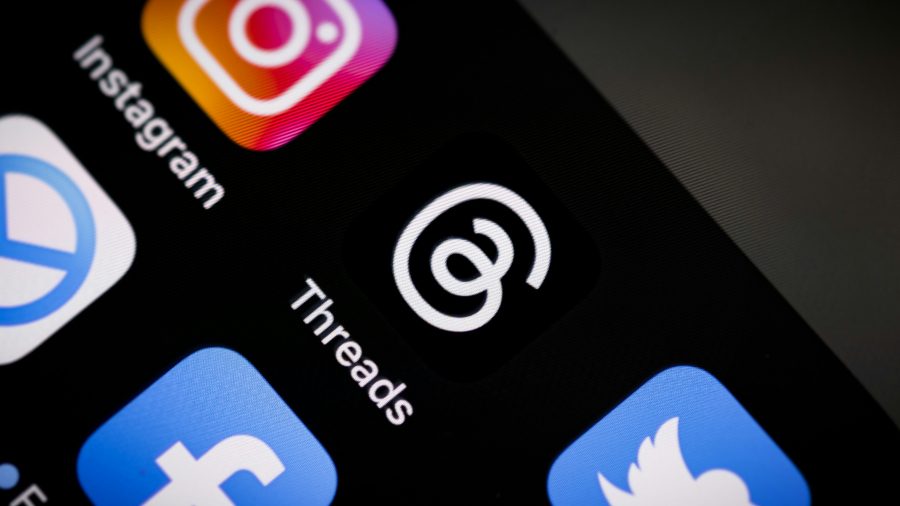Observing April Fools Day has become a time-honored tradition for many web companies. Much like changing your logo to celebrate holidays, pulling a fast one on your users on April 1st is something that many web services and applications have really taken to heart. But keeping creative year-after-year is tough, and some companies have learned how to consistently deliver. Below, based on past performance, is a list of the top 10 places you can go to get fooled tomorrow.

1. Google
Google‘s pranks each year are probably the most anticipated on the web. Last year, they hit users with two: Sewage-based home WiFi, and printed Gmail. Other classics from the Google prank archive include: the Google Mentalplex, Google Gulp, Google’s jobs on the moon, Google PigeonRank, and Google Romance.
Being the tricksters they are, Google also sometimes makes some extaordinary real announcements on April 1, like in 2004 when it used a rather tongue-in-cheek press release to announce Gmail. Google also inspires others to create Google-centric pranks, such as Google Maps Rooms from Google Blogoscoped in 2006.
2. Ebay
Auction site eBay is another great place to trawl for April Fools jokes. Some intrepid auctioneer usually tries to pull a prank each year, perhaps most famously that distinction fell to prop-maker Dan Baines. In 2006 he caused quite a stir when he put up for sale what was purported to be the body of a dead “fairy” on the site. It took him days to respond to all the email he got as a result. “”I’ve had all sorts of comments including people who say they’ve seen exactly the same things and one person who told me to return the remains to the grave site as soon as possible or face the consequences,” he told the BBC.
Sometimes people play off of other pranks on eBay as well. In 2005, one could find invites to Google’s fictitious “Gulp” program being auctioned off on the site.

3. ThinkGeek
Geek-friendly shopping site ThinkGeek sometimes gets in on the Apirl Fools Day act by putting up all sorts of fanciful objects for sale. Last year, for example, they offered the Wii Helmet and inhalable caffeine sticks.
4. Wikipedia
While the validity of Wikipedia for serious research is in doubt already, don’t be surprised if everyone’s favorite crowd-sourced encyclopedia site gets just a tad be more unreliable tomorrow. In 2005, for example, the site announced that it had been taken over by Encyclopedia Britannica. The article, now labeled a hoax, claimed that the new encyclopedia would cost £99.97/page to edit.
5. NASA
The American space organization has been pulling a prank on its “Astronomy Picture of the Day site on April 1 for many years. Some of the best include last year’s space Quidditch match, 2003’s Ollie the Owl constellation, and 1998’s lunar field goal. Our favorite, though, is 2005’s hilarious Water on Mars — pictured below.

6. Facebook
Though a newcomer to the fraternity of April Fools prankers, Valley-darling Facebook got in on the act last year with some interesting stuff delivered to users via the News Feed. They announced their new “LivePoke!” feature, in which users could pay to have their friends literally poked by a real person. They sent out humorous relationship updates, such as, “Harry and Voldemort have set their relationship status to ‘Mortal Enemies.'” And existential status updates like, “You are on Facebook, reading your News Feed.” They even announced, much to the chagrin of sports fans everywhere, that Ohio State and Florida — who were set to meet in the 2007 NCAA championship basketball game — had mututally agreed upon a tie.
7. Blizzard
Blizzard entertainment, makers of the ultra-popular “World of Warcraft” games, likes to have a little fun with its fans on April Fools Day. In 2006, for example, they announced the creation of BurgerCraft, a chain of theme restaurants based on their games. “At BurgerCraft, players will have a chance to truly taste the flavor of Blizzard’s games and savor traditional dishes from all the companys popular game universes,” the company wrote in a bogus press release that included the names of some of the dishes that would be served at the restaurants, such as, Red Dragon Wings, Zealot Fries, and the Frost Shock Smoothie.
Last year, Blizzard got in on the act again by announcing the World of Warcraft tinfoil hat which was of course the “logical result of [a] profound insight, combining tinfoil’s powerful mental shielding properties with the excellent counter-hexing effect of troll tears and the outstanding mind-focus powers of one of Azeroth’s most precious gems.”
8. HowStuffWorks
Beginning in 2006 HowStuffWorks has begun to put up a fake article on the first of April each year. So far, they’ve been must-reads. In 2006 it was animated tattoos, and last year they brought us cell phoe implants.

9. Craigslist
Though not a guaranteed place to seek out an official prank every year, the one that Craigslist pulled in 2002 was just too good not to mention. Known for its simple, and ad-free design, Craigslist has grown to be the largest classifieds sites in the US serving 27 million unique users monthly. In 2002, those users got quite a shock when founder Craig Newmark announced to its visitors that the site would start running banner ads.
“Craigslist represents virgin territory for banner ad placement,” the site said on a page that even included a form for purchasing ads. However, even without the guarantee of an official prank, like eBay, expect Craigslist to be flooded with prank adverts tomorrow.
10. Newspapers
Newspaper, especially those in Britain, love to publish fake stories on April 1. Ever since the 1977 seven-page supplement published in the Guardian detailing life on the fictional island of San Serriffe, newspapers and magazines have been bonkers for April Fools Day hoaxes.
Just last year there was CNet’s April 1 homepage, which sported some fanciful stories including the Dalai Lama being exiled to Second Life and a preview of a new Wii knitting game. There was the grow-your-own Viagra craze in the Independent, Tony Blair heading to the stage via the Observer, and the Register’s fake story on Google and Apple joining forces to make a phone.

Conclusion
Of course, the web isn’t the web isn’t the only place you might be fooled. Companies have a long history of spending real money to put out fake news on April 1st. In 1998, for example, Burger King took out a a full page advertisement in USA Today announcing the “left handed Whopper” — a new version of their famous burger specifically made for lefties. In 1996, Taco Bell announced that it had purchased the famed US historical landmark, “The Liberty Bell,” and was renaming it — you guessed it — “The Taco Liberty Bell.” So keep your eyes peeled, and remember to take everything you read tomorrow with a large helping of salt.
Even we’re not immune. Late last year we reported that CoRank and Menéame had merged before realizing a tad too late that it was actually a prank for the Feast of the Holy Innocents, which is sort of a Latin American and Spanish equivalent of April Fools Day.
Be sure to check out April Fool’s Day on the Web which has been attempting to catalog every web-based April Fool’s Day gag since 2004.





















